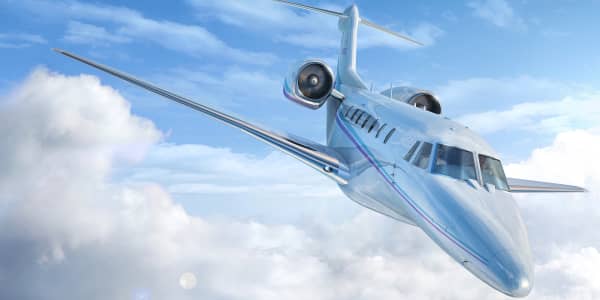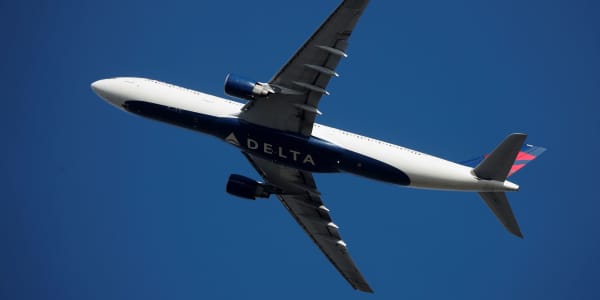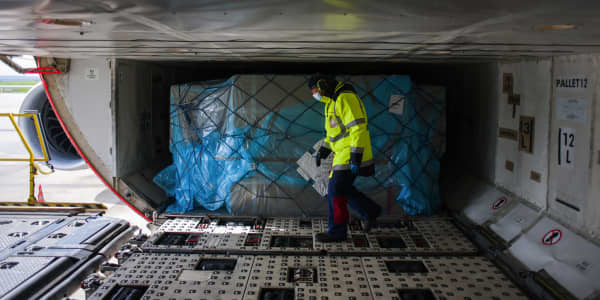The rapid expansion of the Gulf airline industry holds great potential -- and challenges -- for European carriers and airports, according to industry experts at the Dubai Air Show.
The Gulf carriers displayed their spending power and expansion plans at the Dubai Air Show this week, placing orders worth up to $100 billion for 342 Boeing aircraft and up to $40 billion with Airbus. Etihad Airways is set to become the largest runner of the Boeing Dreamliner, while Emirates upped its stake in the Airbus A380, as well as getting off to a good start with the new 777X, ordering 150 of them.
The activity at the show is the latest in a long spending spree for Gulf airlines. A decade ago at the Paris Air Show, Sheikh Mohammed bin Rashid Al Maktoum, the ruler of Dubai, ordered $19 billion worth of aircraft, which was then the biggest deal in aviation history. He warned the aviation community that things were about to change. Now many of the Gulf carriers are gearing themselves up for the new Dubai airport, set to become the largest in the world deal with 160 million passengers per year.
(Read more: Dubai Air Show takes off with multibillion-dollar splurge)
The big three Gulf carriers -- Emirates, Etihad and Qatar -- see Dubai and Doha as the perfect new hubs for global aviation, with the Gulf an ideal location between Europe, North America and the Asian markets. Not just that, Dubai is not just a stopover location: it is also becoming a tourist destination.
James Hogan, CEO and president of Etihad Airways, told CNBC, after announcing its Dreamliner order, that the new aircraft would be "soaked up" on its Indian sub-continent and south-east Asian network as well as its planned expansion in the U.S. and Europe. Hogan added that the airline models on a 14 percent compound growth rate.
For Michel Merluzeau, managing partner at G2 Solutions, the expansion plans of the Gulf Big Three was a wake-up call for European infrastructure. "This new competition from the Gulf airlines only emphasizes the absolute necessity for Europe, France and the UK in particular, to expand their runway and airport infrastructure" he said.
"The third runway at Heathrow is needed more than ever, and fast, otherwise, it's the UK economy that will lose big. This is a matter of staying competitive and providing the tools for commerce to flow efficiently in and out."
Thomas Saquer, aviation analyst at Frost & Sullivan, said European airlines can learn from the Middle East. "I think the market in the Middle East is mainly covered by the local airlines. They are now very powerful; they grow very quickly and have settled their hub in their local airport. Nowadays, major carriers such as Air France, British Airways and Lufthansa have difficulties in their original, historic market as they are directly in competition with the Eastern and Mid Eastern Airlines.
(Read more: The Middle East: The new aviation hub?)
"However, I believe there are a lot of things to learn from the operations of Middle Eastern airlines."
Carsten Schaeffer, Lufthansa's Vice President for sales and services in south east Europe, Africa and the Middle East, told CNBC, that the competition posed by the Gulf carriers made the industry "challenging."
Lufthansa was the only European airline to have a presence in Dubai, where it ordered 34 777Xs, a total overshadowed by its Gulf competitors. Low-cost carrier flydubai, for exmpale, committed itself to 75 737 MAXs and 11 737s totaling up to $8.8 billion.
"The market is a growth region for everybody," Schaeffer said. "We enjoy considerable growth in Saudi Arabia, in Kuwait, the UAE and Doha.What makes it very interesting is we enjoy very exciting numbers in the premium sector. We have always focused on corporate travel and premium travel, our first class has always been state of the art and in these countries they have a very high demand on business class travel."
(Read more: Boeing: Build 777 where it makes sense)
Still, Schaeffer remained confident that Lufthansa can endure the onslaught from budget airlines and Gulf carriers, arguing that for any airline to survive in the industry they need to be ready to adapt and consolidate -- as Lufthansa did when it bought out Swissair.
"It's not about winning or losing; it's about sustaining," he said. "We think we've found our marketplace. This industry is about adapting and it's one of the fastest changing industries out there. The dynamic in the business forces us to respond differently."
"Europe will have a similar trend eventually to the United States, with three main LCCs and three main legacy carriers. Consolidation has happened in the U.S.; consolidation is needed because we are in a game where size matters. It will happen slowly in Europe."




